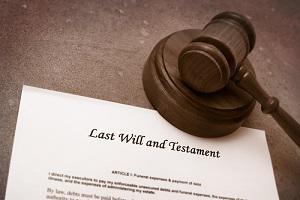Addressing Disputed Estate Documents Following a Loved One’s Death
 Processing a loved one’s death is hard enough on its own. There is no measure for the hurt and overwhelming range of emotions that comes with saying goodbye to someone near and dear to your heart and family. When it comes time to handling wills and other estate documents following the death, the very last thing anyone wants to deal with is an estate dispute.
Processing a loved one’s death is hard enough on its own. There is no measure for the hurt and overwhelming range of emotions that comes with saying goodbye to someone near and dear to your heart and family. When it comes time to handling wills and other estate documents following the death, the very last thing anyone wants to deal with is an estate dispute.
Whether you discover an inaccuracy or you are simply having a hard time believing the information found in the document to be fair, examining a loved one’s wishes and estate arrangements after they are gone can be overwhelming, to say the least. Deciding to mount a legal challenge can be even more difficult.
Factors to Consider
If you or member of your family have come to the conclusion that it is necessary to dispute a certain estate document, you will need to think about:
- The nature of the document and how it was created - If your loved one created a certain document on their own with no legal help, there is a chance that the document will not stand in a court of law. Sadly, when estate documents are created in a do-it-yourself manner, they are less likely to carry any weight when presented in court as official, enforceable orders;
- State of mind - Your loved one’s mental state at the time they created the document matters, but disputing whether or not they were of sound mind or were manipulated or influenced in some way is a matter of debate. Proving these details can be challenging, but with proper legal representation, your case can be taken seriously and examined thoroughly as you sift through the facts and evidence. A professional attorney can help you determine whether or not you can prove that your loved one was unduly influenced. According to Illinois law, influence is “undue” when it “prevents the testator from exercising his own will in the disposition of his estate;” and
- Facts matter - It is very common for estate planning disputes to erupt due to the high levels of stress and grief experienced by family members following a death. It is very important to collect any factual evidence if possible, including any potential witness accounts from those who may have been around or present at the time the document was created. The more tangible proof you have to present your case, the better chance your attorney has to represent your dispute based on the law and concrete evidence, versus basing your case primarily on emotion-driven objections.
Contact a Lombard Estate Planning Lawyer
Figuring out where to begin when you are faced with questionable estate documents is without a doubt intimidating. Your first course of action should be to speak with a qualified DuPage County probate administration attorney, who can address all of your questions and provide you with the representation you need. Call A. Traub & Associates at 630-426-0196 for a confidential consultation today.
Sources:
http://www.illinoiscourts.gov/circuitcourt/civiljuryinstructions/200.00.pdf
http://www.ilga.gov/legislation/ilcs/ilcs3.asp?ActID=2117















